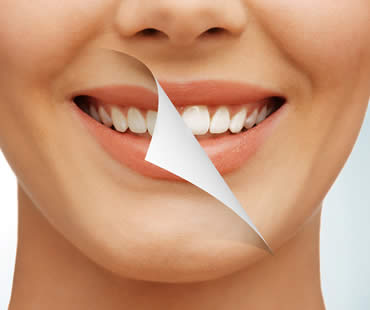
by Dr. Adkins | Jan 8, 2021 | Blog, Dental Information, Dental Topics 2
Does your mouth feel like it’s full of cotton? Or does it remind you of the Sahara Desert? Having an overly dry mouth can result from a variety of dental and medical issues. For example, one common culprit of dry mouth symptoms is related to medications. The best long-term solution is to consult your dentist or physician to determine the root cause of your dry mouth, and to get treatment to solve the problem. Sometimes all that is needed is to change to a different medication, and your dry mouth will disappear. However, here are some things you can try to temporarily relieve your dry mouth until you are able to determine what is causing it.
- Sip water often.
- Limit caffeine consumption, which can dry out your mouth even more.
- Chew sugarless gum or suck on sugarless hard candy.
- Use an over-the-counter saliva substitute, such as Biotene.
- Do not use tobacco products of any kind.
- Do not use mouthwashes containing alcohol, because it can be drying.
- Avoid over-the-counter antihistamines and decongestants, which can worsen your dryness symptoms.
- Add moisture to the air using a humidifier.
- Try to breathe through your nose instead of your mouth.
If you do experience the symptoms of dry mouth, it’s especially important to protect your oral health. Make sure you brush your teeth with toothpaste containing fluoride, and ask your dentist if prescription fluoride toothpaste would benefit you. Use a fluoride mouth rinse before bed to add an extra layer of protection for your teeth. Limit the amount of sugary foods or items high in acids, as both of these types of foods increase your risk of tooth decay. Following these tips for relieving dry mouth symptoms can make it more comfortable for you to eat, swallow, and talk.
Schedule your appointment at our McDonough dental office

by Dr. Adkins | Jan 1, 2021 | Blog, Dental Topics 2, Teeth Whitening
Magazine articles often say that a smile reveals a person’s personality. If so, you don’t want to have dull, yellow, stained, dingy teeth! Instead you want a faultless set of pearly whites that communicates the best things about you, such as good hygiene and a confident air.
To transform your smile from dull to brilliant, teeth whitening is a great option. The field of dentistry has developed a whole array of products and procedures for brightening smiles. For example, patients may choose to completely hide their discolored teeth behind dental veneers. Or, tough stains can be covered up with dental bonding. If you’re looking for methods that simply bring your yellowed teeth back to a more appealing shade of white, there are several teeth whitening techniques to choose from:
- Over-the-counter products are available from your local drugstore including whitening strips, gels, pens, toothpaste, mouth rinses and more. These require consistent use following the directions, and take longer than most other methods. Most products do provide some level of improvement, but not as dramatic as professional methods.
- Home whitening methods are available from your dentist, such as customized trays that you fill with a special bleaching solution to wear at home for a period of time. At-home whitening typically takes several weeks to achieve desired results.
- Professional whitening is performed at the dentist’s office using specialized tools. It is the most effective method and results are visible in only about an hour, due to the highly concentrated bleaching solution and enhancement with ultraviolet light or lasers.
Teeth whitening not only brightens your smile but also can shape your entire personality. A common benefit is increased self-confidence because you no longer feel you need to hide your teeth, but instead you tend to smile and laugh and speak more easily. Feelings of embarrassment about your teeth can affect you in many ways, but a smile that you’re proud of can improve the way you interact with others. Ask your dentist about whitening methods that can help you improve both your smile and your personality.
If you need a dentist in McDonough contact us today

by Dr. Adkins | Dec 25, 2020 | Blog, Dental Topics 2, Oral Surgery
While minor gum recession can be treated by your dentist with deep cleaning and antibiotics, serious gum recession can only be treated with oral surgery. A loss of bone and gum pockets that are very deep require gum surgery to address the pain and damage left by acute gum recession.
Three treatments are used primarily in the treatment of serious gum recession, in order of invasiveness: pocket depth reduction, regeneration, and soft tissue graft. Pocket depth reduction involves a deep cleaning of the affected area. The periodontist folds the gum tissue back and utilizes tooth scaling and root planing to remove any tartar and plaque built up around the tooth. Once the gum pockets are clean, the surgeon pulls the gum tissue gently around the tooth, eliminating the deep pockets altogether or significantly reducing their depth.
Regeneration utilizes a similar treatment to pocket depth reduction, but it also addresses any bone loss that occurred due to acute gum recession. In this process, a regenerative agent such as graft tissue, membranes or tissue stimulating proteins is added to the affected area. The gum tissue is then tucked into place and stitched down. Over time, the regenerative agent will work to rebuild lost bone and tissue, leaving healthy and thriving tissue behind.
The most common soft tissue graft is taken from the patient’s own mouth, either by removing tissue from the roof of the mouth or from the gum tissue near the affected tooth. The healthy gum tissue is placed in the affected area, over the exposed tooth root, protecting it from infection and damage.
To prevent the need for oral surgery to address your receding gums, have good oral hygiene habits. Brush, floss and see your dentist twice a year for checkups and professional cleanings. Talk to your dentist if you have any other questions about how to reverse or prevent gum recession.
We treat patients from McDonough and the surrounding area

by Dr. Adkins | Dec 11, 2020 | Blog, Dental Topics 2, General Dentistry
It’s no joke that some people are afraid of going to the dentist. There’s even a word for this fear: dentophobia. It can prevent you from getting preventive care, diagnostic tests, or restorative treatments, all of which are vital in maintaining good oral health. If you suffer from dentophobia, what can you do so that you’re able to visit your general dentist?
The first step is educating yourself about the process. Fear of the unknown may be what’s stopping you from visiting the dentist. Schedule an appointment, get a tour of the office, ask about the equipment being used, and learn about common procedures. Take the time to meet the dentist and staff so that you can obtain a comfort level with the caregivers.
If knowledge isn’t enough to ease your dental fears, ask our general dentist about medications available that will allow you to successfully get treatment without having too much anxiety. Sedation dentistry is offered by many general dentists today, which offers various levels of sedation. Nitrous oxide (or laughing gas), oral medications, or even general anesthesia are often available depending on your needs and concerns.
Many dental offices provide relaxation aids to make patients more comfortable. These may include listening to music through headphones, watching videos, lap blankets to increase comfort, and more. You might also want to invite a friend or family member along as a source of support throughout your appointment. Consider rewarding yourself after a successful appointment by going to lunch afterwards or treating yourself to a favorite item like ice cream or a pedicure.
If your dentophobia still isn’t controlled with these techniques, a professional psychologist may be able to suggest breathing techniques or other relaxation methods to help. Sometimes identifying the root of your fears can help you overcome them as well. The main thing is to figure out a way to be able to visit your general dentist and get the care you need for a healthier smile.
If you need a dentist in McDonough contact us today

by Dr. Adkins | Nov 27, 2020 | Blog, Dental Topics 2, Root Canal Treatment
Even though regular checkups and proper dental hygiene greatly decrease the need for root canal treatment, the fact remains that it is one of the most common procedures performed by dentists today. What are some of the most common reasons you might need this dental solution?
Decay:
The primary cause for root canal procedures is decay that has entered the tooth pulp chamber and progressed to the point of causing infection or abscesses. Pain and tooth sensitivity often accompanies severe decay. Root canal treatment is the best way to avoid tooth extraction and restore oral health.
Trauma:
If a tooth endures strong force such as from a sports injury, car accident or fall, the trauma can damage the tooth so badly that root canal treatment is needed. Even if trauma isn’t completely evident at first, a severed nerve to the tooth can cause it to die over time.
Genetics:
Traits of teeth like their strength are passed along through genes. Some people inherit soft teeth that are more prone to decay, making it difficult to avoid decay even with diligent oral hygiene.
Tooth fracture:
A tooth can be fractured through chewing hard foods or ice, teeth grinding or clenching, or habits like nail biting. Even hairline fractures may allow bacteria to enter the tooth’s pulp and cause infections. Once the bacteria takes hold, root canal treatment may become necessary.
Deep cavity:
Deep cavities within teeth can allow infections to thrive, eventually causing the tooth to become inflamed or die. A deep cavity isn’t necessarily painful, so patients may not even realize they have an infection. Regular dental checkups help catch cavities early, before they are able to become so deep and serious.
Previous dental work:
Extensive or repeated dental work can cause trauma to teeth nerves and associated inflammation, making root canal therapy an important solution.
If you live in the McDonough area contact us today

by Dr. Adkins | Oct 30, 2020 | Blog, Dental Topics 2, Teeth Whitening
Are you tired of your dark, dingy smile? Have you decided it’s time to brighten up your pearly whites? Teeth whitening is one of the most popular cosmetic dental treatments to quickly and effectively improve the quality of your smile. However, there are many whitening options offered, and you may be confused about which type of whitening treatment will best help you achieve the look you desire. Whether you are deciding between at-home whitening treatments or professional teeth whitening, there are some things to consider when exploring your options:
- How quickly would you like to see results? If you are planning for a special event such as a wedding or trip, professional teeth whitening will offer quicker results than at-home treatment. With professional whitening, your dentist may be able to whiten your teeth up to ten shades in as little as one visit.
- Are your teeth highly sensitive? With professional whitening treatment, your dentist can take extra precautions to avoid over-exposing your teeth and gums to bleaching gels, which may be harder to do with at-home treatments.
- Are you committed to your whitening treatment? If you are diligent and follow instructions, at-home treatment can be highly effective. However, if you neglect to wear the trays as directed or to follow whitening treatment instructions, you results will be diminished. If you are stretched for time, or forgetful, professional whitening treatment may be the best option to achieve optimal results.
- How severely are your teeth stained? Teeth with heavy discoloration may benefit the most and show the greatest improvement with more intense professional in-office treatments.
Talk to your dentist about whitening treatment options to find out more about what procedures would best suit your needs. Regardless of which type of whitening treatment you select, with diligent treatment and proper care, you are sure to enjoy the benefits of a whiter and healthier looking smile.
Schedule your appointment at our McDonough dental office








 (470) 665-5292
(470) 665-5292  E-Mail Us
E-Mail Us 
